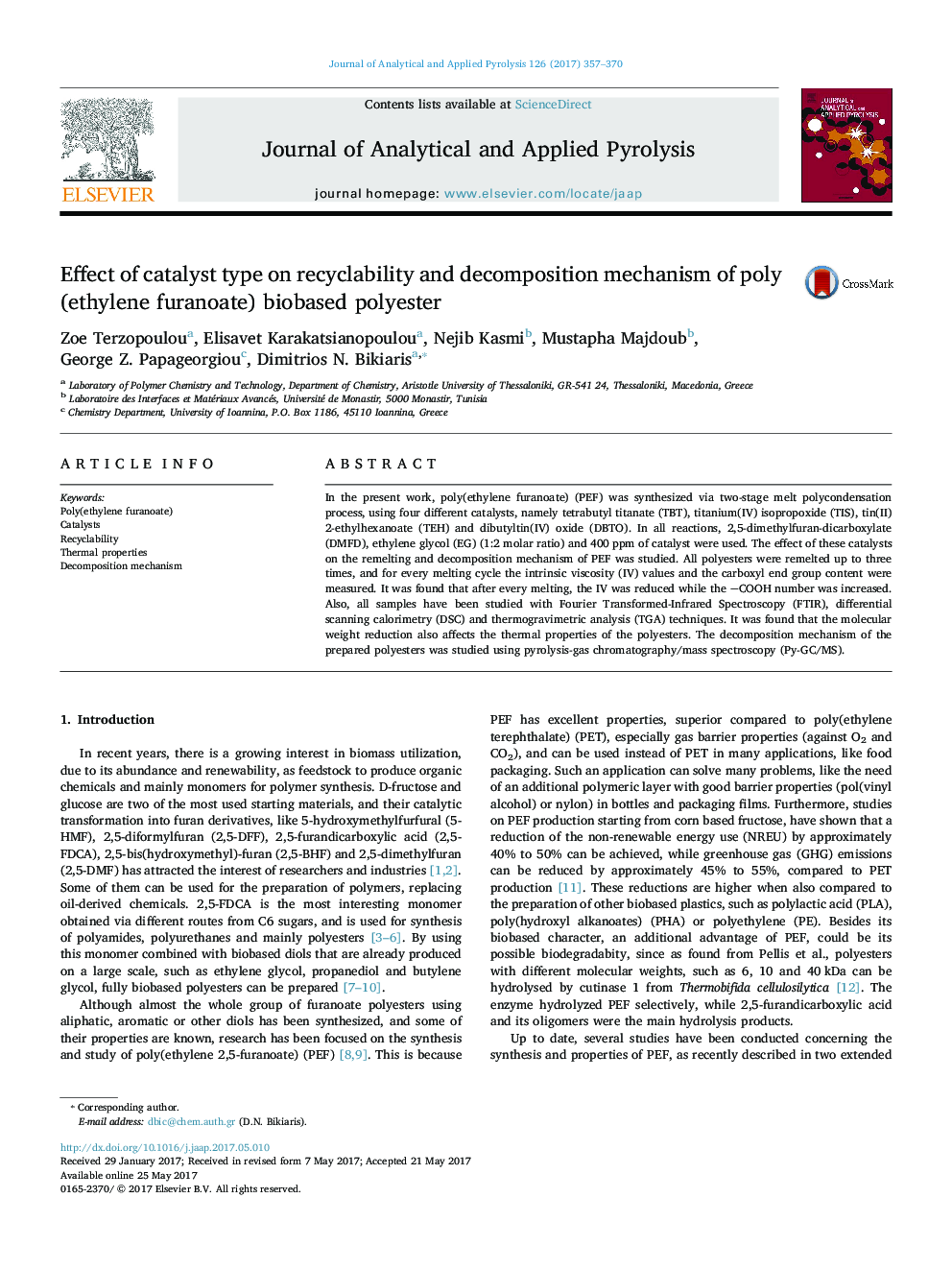| Article ID | Journal | Published Year | Pages | File Type |
|---|---|---|---|---|
| 5134690 | Journal of Analytical and Applied Pyrolysis | 2017 | 14 Pages |
â¢Poly(ethylene 2,5-furan dicarboxylate) was prepared using 4 different catalysts.â¢Effect of these catalysts on PEF recyclability was evaluated after 3 remelting cycles.â¢Titanate catalysts accelerate PEF degradation during re in higher extend than tin catalysts.â¢Used catalysts affect PEF decomposition mechanism studied by Py-GC/MS.
In the present work, poly(ethylene furanoate) (PEF) was synthesized via two-stage melt polycondensation process, using four different catalysts, namely tetrabutyl titanate (TBT), titanium(IV) isopropoxide (TIS), tin(II) 2-ethylhexanoate (TEH) and dibutyltin(IV) oxide (DBTO). In all reactions, 2,5-dimethylfuran-dicarboxylate (DMFD), ethylene glycol (EG) (1:2 molar ratio) and 400Â ppm of catalyst were used. The effect of these catalysts on the remelting and decomposition mechanism of PEF was studied. All polyesters were remelted up to three times, and for every melting cycle the intrinsic viscosity (IV) values and the carboxyl end group content were measured. It was found that after every melting, the IV was reduced while the COOH number was increased. Also, all samples have been studied with Fourier Transformed-Infrared Spectroscopy (FTIR), differential scanning calorimetry (DSC) and thermogravimetric analysis (TGA) techniques. It was found that the molecular weight reduction also affects the thermal properties of the polyesters. The decomposition mechanism of the prepared polyesters was studied using pyrolysis-gas chromatography/mass spectroscopy (Py-GC/MS).
Graphical abstractDownload high-res image (177KB)Download full-size image
